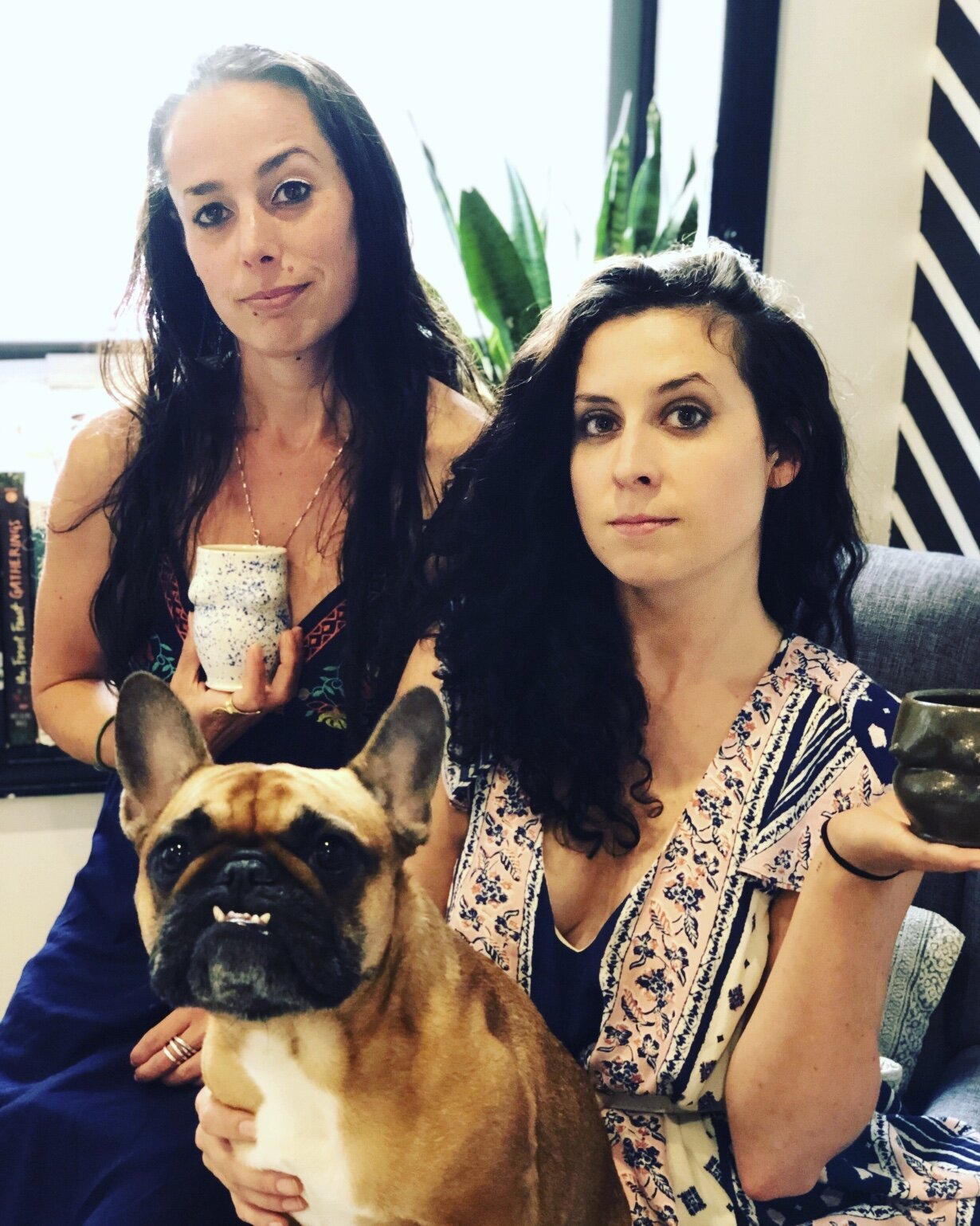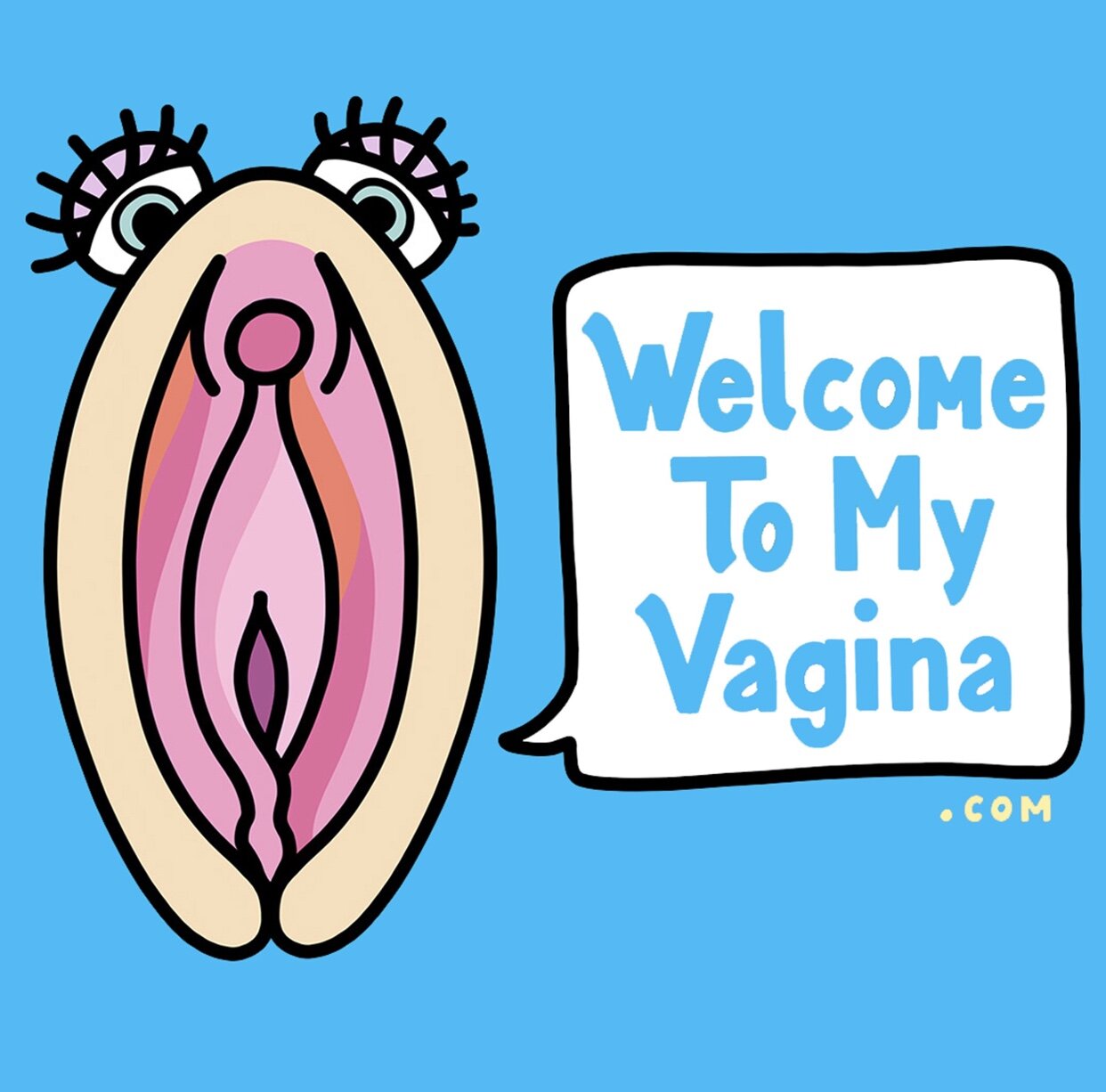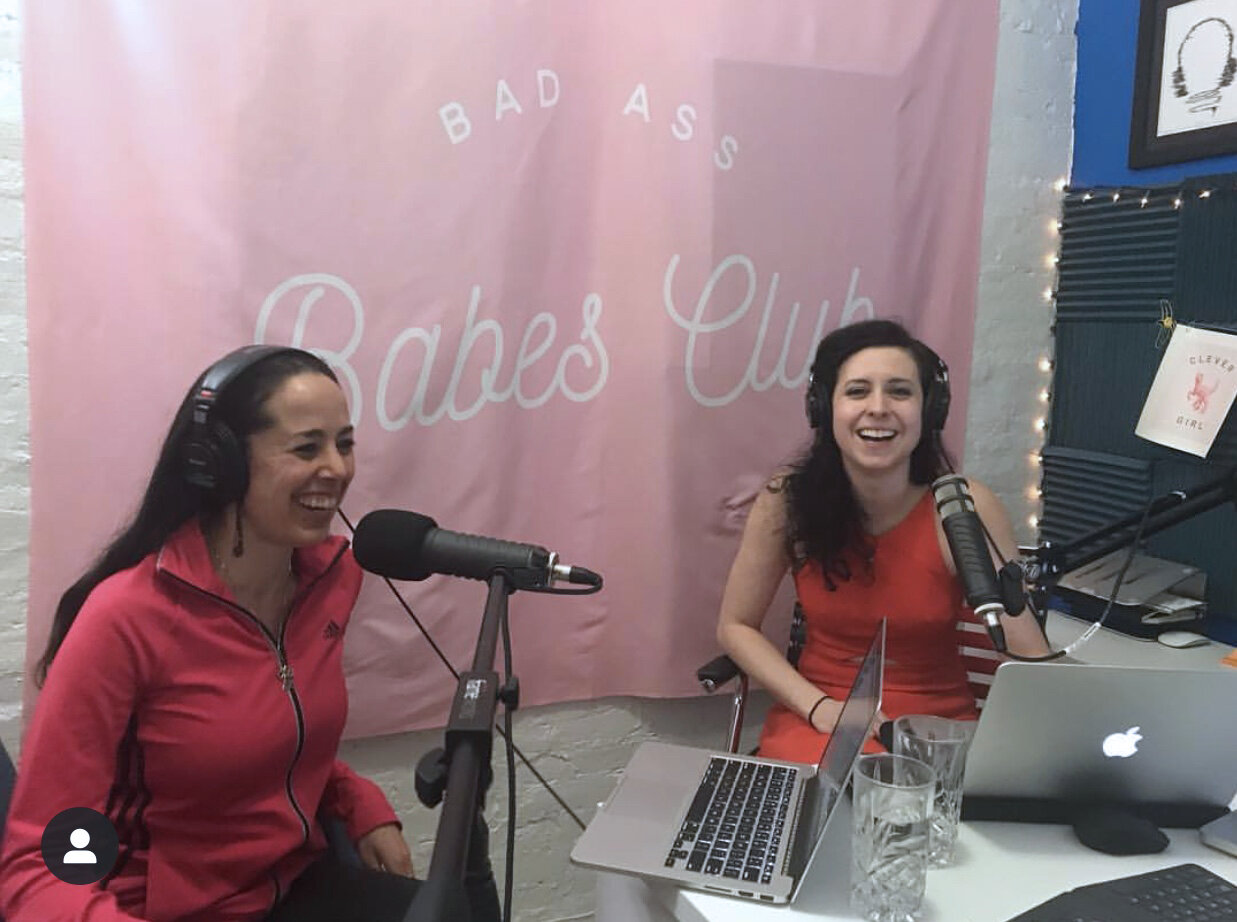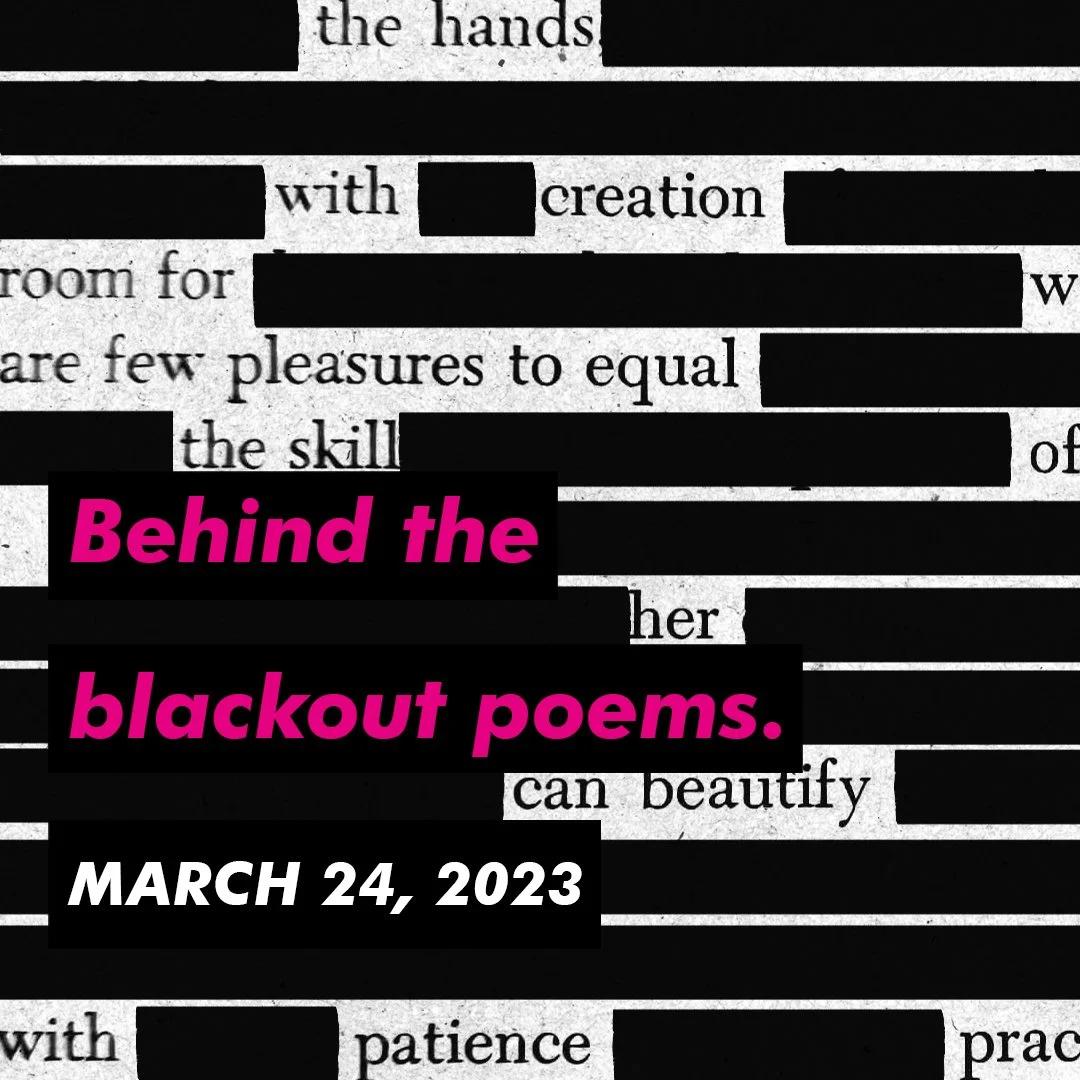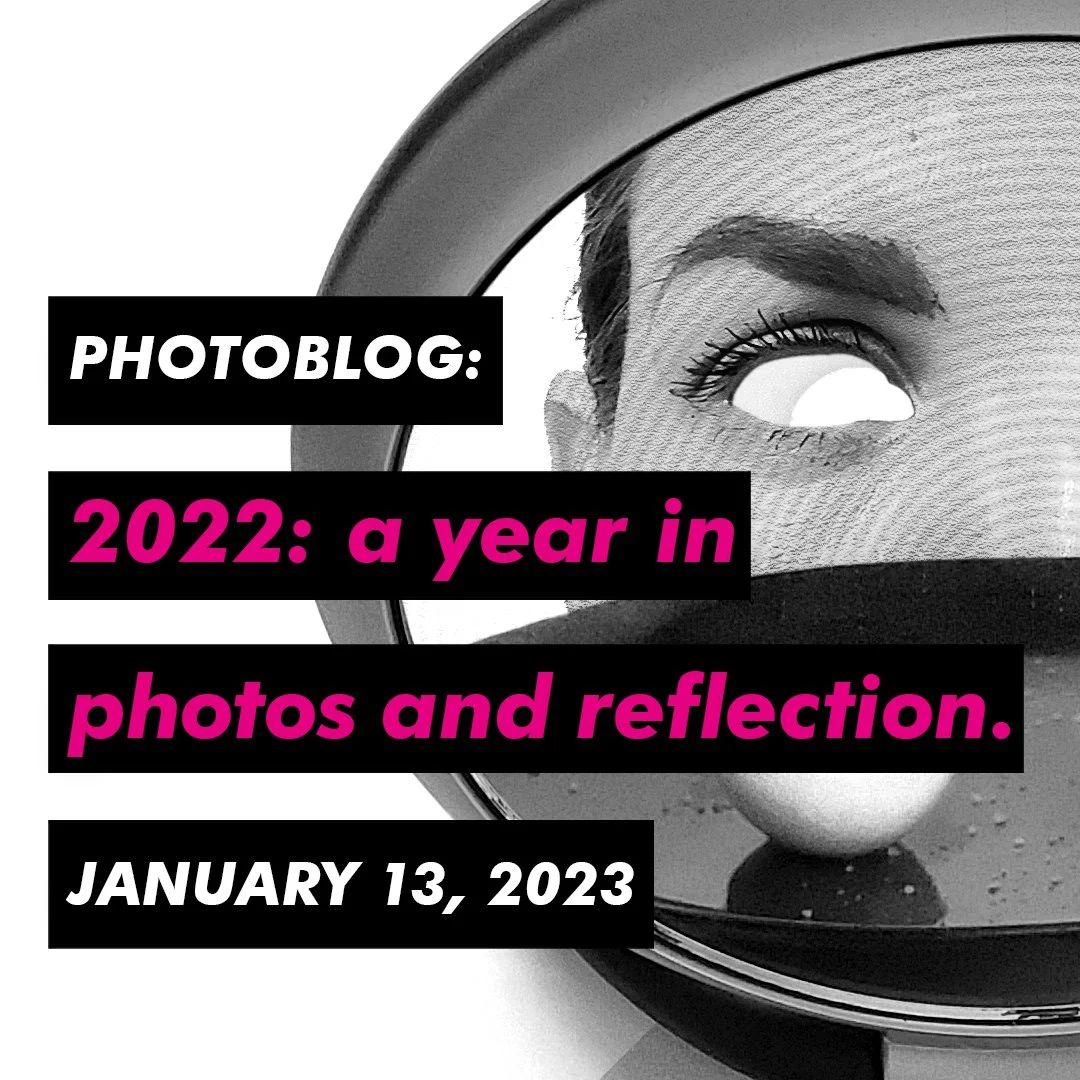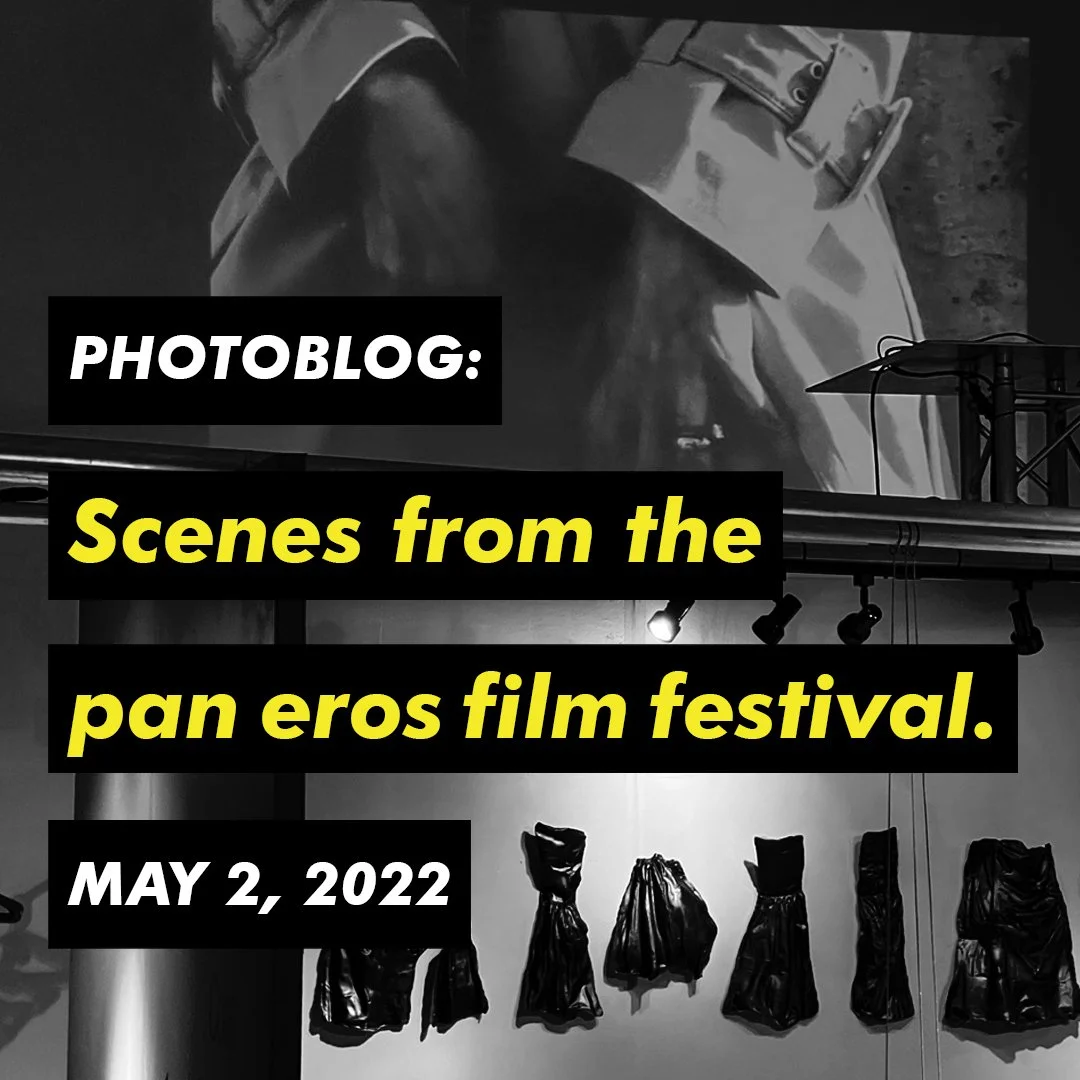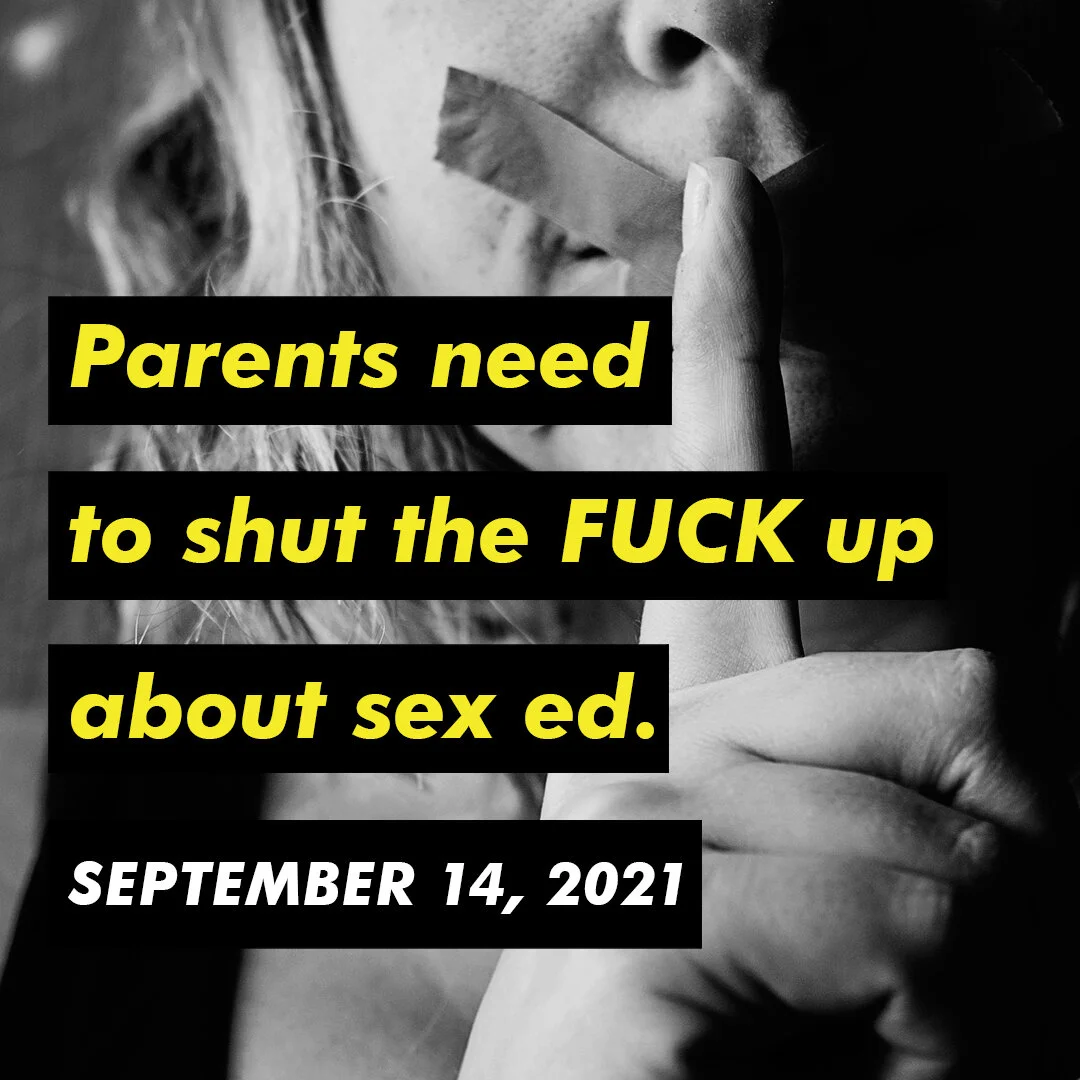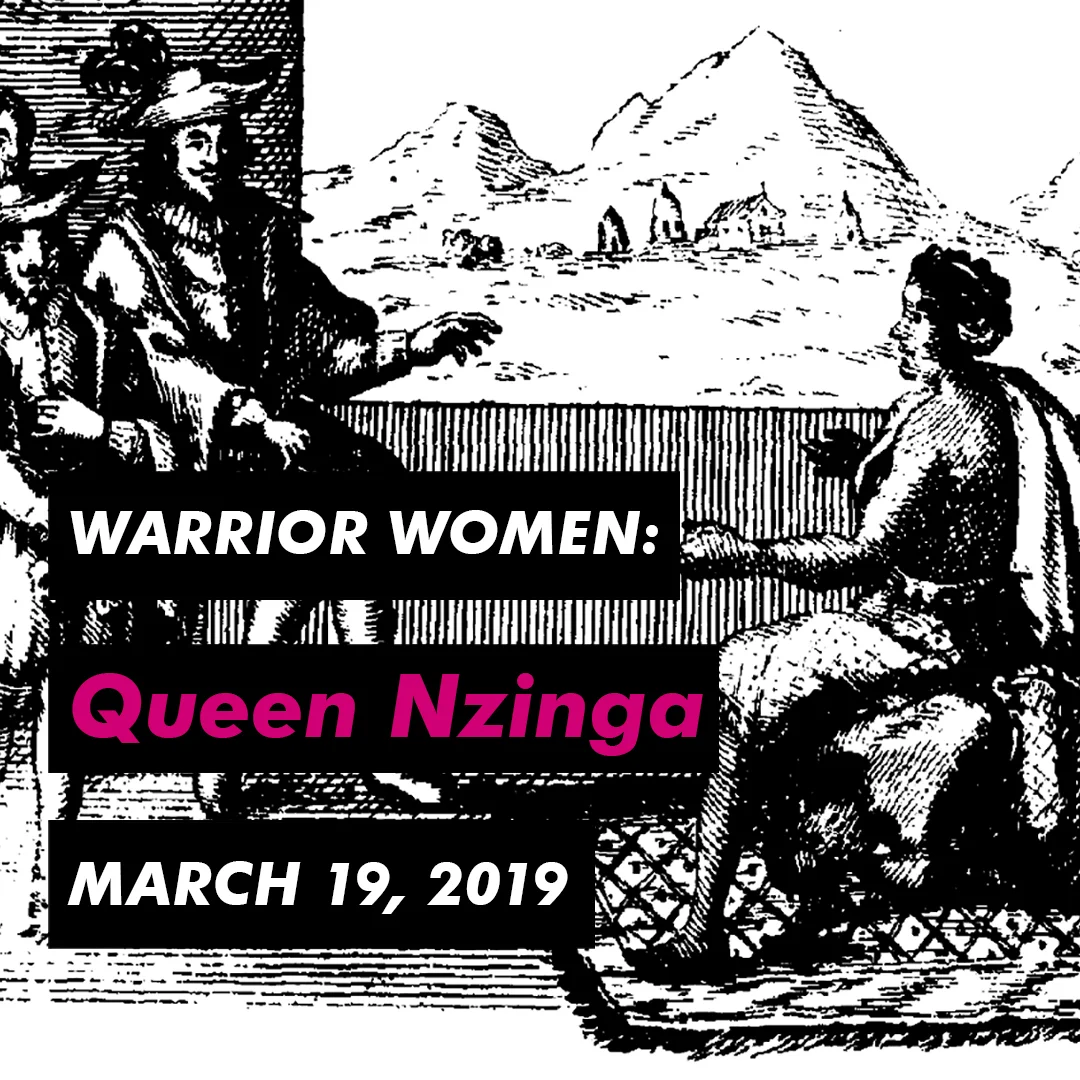As part of a new series—Q&A Sessions—the Femme Project is profiling exceptional women artists, advocates and resisters who are making their voices heard. Because we are stronger together, and women empowering women is an unstoppable force and wave of change.
Photo Credit: Welcome to My Vagina
real talk with welcome to my vagina continues …
In Part Two of Two, I finish out the convo with Jessy Caron and Rebekah Frank, the fabulously fierce females behind Welcome to My Vagina, a podcast and web series about sexuality, gender rights, and sex education. Read on, listen to their podcast, and of course, follow and hollaback on the socials.
Let’s start off Part Two with a bang and talk about sex! If you are comfortable sharing, how do your own experiences with sex and sexuality play a part in the topics you talk about on your show?
RF: Rebekah, here. I am admittedly a little bit of a private person in terms of talking about my personal experiences with sex and my sexuality and so at times it has been a bit challenging for me. For me, it can be a hard line to walk – wanting to be open, accessible and honest while also being rather guarded about myself. But I think over time I have been opening up bit by bit. It’s a process for me, but I am learning a lot and maybe some other folks out there who are also a little private about this stuff feel like they have found a kindred spirit. It’s okay to be knowledgeable and also be reserved.
JC: Jessy, sup. I have often found things that our society deems taboo… mind-numbingly hilarious. These are often the topics I want to poke at or better yet use a battering ram to break down the fucking door. Society has told me since I was a young girl that sex was such a huge deal that I thought there were rules about how long I had to wait. It was never really my decision. When I finally consented to having sex with my very patient boyfriend I remember finishing and out loud saying “That’s it?” repeatedly… to my boyfriends chagrin. After that I took sex a lot less seriously. Sex is not something to be afraid of. It’s about pleasure, connection, sometimes love, sometimes just because and sometimes… sex is just funny. I’m not entirely sure why we teach our young girls that our sexual debut should be such a feared experience. It doesn’t have to be. I remember a therapist once saying that I said or did things (especially in relation to what I was doing with WTMV) just for the shock value. After I shook off the shame of what I think she was suggesting I realized she was right. I DO want to shock people into learning that sex is a shared experience and that as a society we owe it to our young people to teach them about safety but also that pleasure is important. It’s not just about making babies. And if you queef, laugh it off and go again.
We come from these two very different approaches and so the topics we choose allow us to explore these different aspects of our sexuality. We all approach sex from a different perspective and to that end, everyone deserves to be supported in how they choose to explore their own sexuality.
Would you say you are more or less sexually empowered since embarking on this journey with the podcast and webseries?
JC: Oh hey girl hey. ABSOLUTELY! I think when I started the web-series I was but a babe in the wood. Starting that web-series was one of the best things I have ever created in terms of how my views evolved about the world, about how women are perceived in it and how I viewed sex and self-pleasure. The more information I gathered, the more empowered people that I found, the more it fed a healthy curiosity. A curiosity I didn’t indulge as much before the show; a curiosity that our youth is being neglected of through the education process. I would take a gamble that anyone reading this remembers that their sex ed as was not only lacking in information about anatomy and pleasure but also often shameful. Making the show empowered me to identify the shame, throw a middle finger up at the patriarchy and then masturbate with it. There was a moment when I had someone slide a credit card through my bare ass on camera for a sketch about transactions that I thought… well I’ve gone this far. No need to hide my truth.
RF: Rebekah, here. I don’t know that I really think about it in terms of my understanding of sexual empowerment. I have a (sometimes unhealthy?) tendency to over intellectualize things and so I am not sure how much working on the podcast has impacted my sexual empowerment so much as it has allowed me to think deeper into my understanding of, and interaction with, my own feminism. I have learned A TON and have for sure become a much more entertaining party guest so I would say it has more impacted my intellectual empowerment and confidence in a more general way.
Rebekah, in your blog you have talked about the challenges of how FOSTA/SESTA have limited your ability to use your logo for Facebook and Instagram advertising. I might argue that tech companies are now in the business of deciding what content is acceptable for users to consume. What is your perspective about that?
RF: I would totally agree with that assessment, with a slight caveat. I think that we are, once again, seeing proof that our “democracy” was built on puritan values and the continued empowerment of the white, patriarchal power structure. One of the core issues is that legislation is created without the input of people on the ground. FOSTA/SESTA was written and passed as an anti-sex trafficking bill. The way it was written lumps in sex trafficking with consensual sex work which has negatively impacted those who participate in that economy – in terms of their ability to continue to make an income and their personal safety. It also includes all of us on the internet who work hard to fill in the knowledge gap left by our country’s piss-poor sex education. It is a losing situation all around because it also hasn’t effectively dealt with sex trafficking, instead it has driven it further underground.
That being said, this loosely-worded legislation unfairly saddles tech companies with the responsibility of policing users in order to be in compliance with it. Some of them have done what they can to support creators, such as glow.fm which is who we began working with to take donations when we were essentially shunned by Patreon. But most of them – I’m looking at YouTube, Instagram and Facebook – have taken their interpretation of this legislation to the max by refusing to allow accounts such as ours to advertise using their services and, as is the case with YouTube, demonetizing accounts like WTMV because it violates ever-changing and poorly explained “community guidelines.” It is incredibly frustrating, but it is also what makes us scrappy fighters and has been helping us build strong relationships with partners outside the mainstream such as yourself!
How do your friends, family, and partners feel about what you are both doing on the podcast?
JC: Well … 6 years ago when I started it was a totally different bag. I am so happy to see that now saying the word Vagina is so mainstream that I’m not even afraid to don my giant vulva costume. Seriously though the environment that I launched the web-series in was a lot less accepting than the one our podcast landed in and YouTube was, and is, a giant bridge under which trolls flourish. On a personal level when I started the show with my inaugural episode about cock rings, the reactions were varied. My friends were overwhelmingly supportive of my goals whilst my family and partner were less than enthused. My uncle unfollowed me from Facebook and we haven’t spoken for 7 years. My other uncle blames every liberal thing that I do on my “Vagina Monocles.” My mother initially chose the “oh that thing you’re doing” approach but by the time the podcast rolled around, 4 years later, she was much more supportive - even giving us the prompt for our pussy episode! My boyfriend at the time struggled with the subject matter and the way I approached it in a big way. In fact, for the first 6 months or so it we didn’t talk about Welcome To My Vagina at all even though I was pouring my creative energy into it. That being said we did have a ‘come to vulva’ moment when I expressed the project’s importance to me and he went so far as to appear in a few of my episodes and eventually become a sounding board. #growth
RF: I am pretty fortunate in that my family is very liberal and although we didn’t have an open dialogue about sex and sexuality in my house, my parents and siblings have been super supportive about me being part of this project – my sister was even on one of our early episodes! My dad doesn’t listen to it but he does occasionally call with marketing ideas so, you know, he does what he can. People in my immediate circle have been really awesome about it, they are some of our biggest cheerleaders and are very invested in our success. I do get some funny looks and side eye from people on the outskirts of my network but my hope is that they will listen and will be empowered to ask more questions and be less squeamish about the things we talk about.
When it comes to subject matter, is everything fair game? Or are there places you are not comfortable going? If so, why?
WTMV: As long we have the appropriate expert or community member as a guest or adviser, nothing is really off limits. For example, Jessy did an episode for the web-series to educate viewers about intersex people but she did not discuss the experience of being intersex because she hasn’t had that experience. We have talked about abortion policy, but brought a guest on to speak about the experience of having an abortion. We want to make sure we don’t shy away from any topics, while at the same time being responsible to those who can speak more deeply about it.
After the Women’s March on Washington in 2017, I stood in a sea of over 500,000 people in the nation's capital and felt optimistic about what the future would be for women. Today, I feel much more pessimism about the current state of women. Do you share that perspective? Why or why not?
WTMV: We do have our moments of feeling that way – it was especially rough during the Kavanaugh hearings and watching the way Trump and his cronies disrespected Marie Yovanovitch. Ultimately, keeping ourselves optimistic about the current state of women is what allows us to continue to work as hard as we have been on Welcome To My Vagina, both the podcast and web-series. Also, our community has come to rely on us to keep them laughing even when we cover dark topics so being accountable to all of them has really helped keep our optimism alive. Sometimes, we have the urge to join Atreyu’s horse Artax in the swamp of sadness, but then how would we make a positive difference? So we fight another day.
A consistent theme in many of your podcasts is reminding your listeners how women are diminished in everyday aspects of life, you both have used phrases similar to, “women are somehow less than human.” The magnitude of that reality is hard to process sometimes, and I agree with you, 100 percent. How do you make sure you don’t emphasize it to the point where people tune it out? Become desensitized to it and don’t take it seriously?
WTMV: People ask us quite often if we think we will run out of topics and the answer is, no, never. In a way, that is a really heavy thing to sit with and it feels like we are fighting this never-ending uphill battle. But just recently, a woman reached out to us with her story of being raped on campus. She was unable to get justice through our criminal justice system or the campus Title IX process and so she came to us because for her at this point the most important thing is for her story to be heard. So as much as it can seem like this crushing load, we really believe people need their stories, experiences and beliefs broadcast so they don’t have to feel as though they are sitting in them alone. But it is really refreshing to know that people want this knowledge, that they need this knowledge and that despite how garbage our sex education is and how hard it can be for women to get a leg up, we have this amazing platform to share information and laughs with an audience that is eager to absorb and participate in it.
We live in a world where fame is more important than substance and where alternative realities replace facts. How does that impact the topics, content, and discussions you have?
WTMV: We take sharing accurate information very seriously. We publish detailed episode notes with every release, each of which that provide sources for what we say and additional information where we feel it is necessary. We make sure to be responsible about what sources we use and when we fuck up – because we are human and it is bound to happen – we make sure to correct it on a subsequent episode. We strive to be as transparent as possible across the board because we believe that there is no such thing as “alternative facts” and that it is disgusting to create a narrative that deliberately misleads people to achieve specific ends. We have a lot of respect for our community and they trust us to do our due diligence and we truly take that to heart.
As a follow-up to that question, do you worry that you may just end up “preaching to the choir,” so to speak?
WTMV: We definitely would like to expand our audience and bring more people into our (labia) fold. That being said, our audience does not always agree with us – we have the very kind and constructive emails to prove it, which we love – but they still listen and they are open to hearing our perspective. We also learn so much in the process of creating each and every episode and we hope that the experience is the same for our audience. We truly believe that when we stop learning we stop growing as humans and as long as we keep pushing the envelope and challenging things, we never truly exist in an echo chamber. So, yes, our audience is somewhat self-selecting but we hope that our approach of being down-to-earth, funny, well-researched and approachable will encourage more people to give us a try and have an open mind to what we are trying to do. And some things are worth repeating.
For most of our history, women have been shamed as means to control them. I am focused on sex and sexuality because, I believe, we as women cannot be truly equal until we own the conversation about sex. I mentioned earlier that you want to educate people about topics that are “taboo.” The use of the word taboo implies a healthy dose of shame lurking around the corner. How does shame figure into how you choose the topics you talk about in the podcast? Does it have any impact on the style or approach you select?
WTMV: Oh, fuck yeah! Jessy started the web-series as a way to shine light on the things that we are shamed the most for and when Rebekah came on board it was really important to keep that as a central tenant of the project. People are shamed starting early in childhood – by society, by the education system, by family whether intentionally or not. And we carry that shame within us as we go through life and it just sort of festers there. So we think that by bringing these topics out into the open we can help all of us – our audience and ourselves – start to work our way through that and out of it. Shame is an incredibly heavy burden to carry so we choose topics and our approach to them in an effort to lighten that load a bit as best we can.
Do you have a favorite podcast episode?
JC: My favorite episode is the one about body hair. It’s the one thing that EVERYONE seems to struggle with: Men, women and everyone in between . We worry about whether we have too much, if we don’t have it at all, do we shave or let it fly, if we should tease our pussy hair into a handlebar mustache or shave our back hair into a portrait of our mother. Men are shamed for baldness, women are shamed for downstairs bush, trans people have to fight for hair where they want it. It’s a mess. It’s another way our society tells us how we should occupy our bodies and what it is that we have to buy to make ourselves acceptable. AND it was a lot of fun to talk about the history of body hair. Did you know women in the Victorian era used to put cat poo on their forehead to make their foreheads bigger??
RF: This is so hard I just love them all! As far as guest episodes go, I loved the episode we did with Leigh who is a sex worker and activist. They were so smart and introduced us to all the nuance surrounding FOSTA/SESTA that has really informed our understanding of legislation and how far-reaching it is. She also introduced me to a lot of aspects to sex work that I had never really been exposed to previously – specifically how sex work can be really important for portions of the differently abled population; touch is so important and there are so many people who are excluded from the touch economy, if I can call it that. I also really loved our Hysteria episode because it was just so fun to do. We laughed SO hard making that episode. Honestly even thinking about it right now makes me laugh.
★★★
welcome to my vagina / online / instagram / twitter / youtube
more about wtmv
Welcome To My Vagina podcast, hosted by Jessy Caron and Rebekah Frank, and the web-series of the same name created by Jessy, are about sexuality, gender rights, and sex education. We destroy the taboo of sex and shut down misogyny via the black hole of the all-powerful vagina. WTMV is a laugh til you queef adventure in sex education made up on the spot, but probably (definitely) researched.
jessy caron
Jessy Caron is the creator of Welcome To My Vagina, an actor, editor, shower singer, retired competitive barrel racer, aspiring burlesque dancer, world traveler, attempted swing dancer, professional dog petter and dinosaur geek. You can find her on Instagram @jessticles00 and @waywardh0, on Twitter @welcometomyvag, YouTube and outside of her imaginary dressing room Monday-Friday. Please form a proper line whilst you wait for autographs.
rebekah frank
Rebekah Frank is a writer, podcaster, runner, gymnastics aficionado and unapologetic feminist. You can find all her musings at franklyrebekah.com and follow her on all the socials @franklyrebekah, although her Twitter feed is mostly just rage tweets and old gymnastics footage so consider yourself warned.


